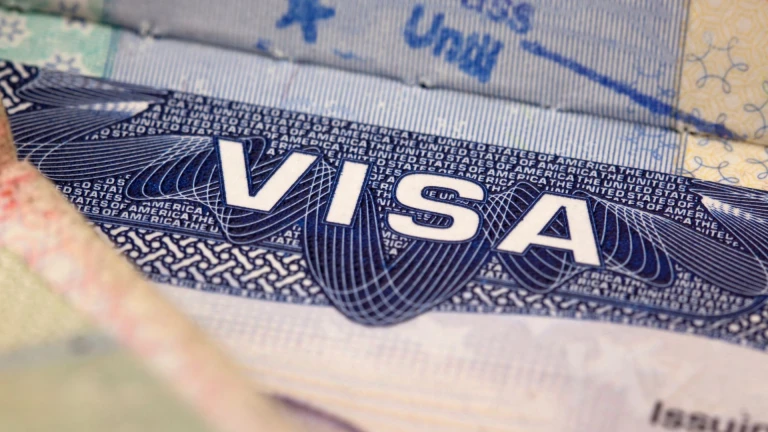USCIS Updates Visa Processing and Fees: Impact on Students and Applicants
In a recent development, the US Citizenship and Immigration Services (USCIS) has revealed adjustments to visa application processing fees, affecting several categories, including students and H-1B visa applicants.

New USCIS Application Fees Unveiled
The USCIS website has detailed the updated premium processing fees for various forms, such as I-129, I-140, I-539, and I-765. Specifically, the premium processing fee for I-129, which deals with petitions for nonimmigrant workers like those on H-1B and L-1 visas, has seen a 12% increase to $2,805 from $2,500. Similarly, the premium processing charges for Form I-539, commonly used by international students and dependents of H-1B visa holders, have risen to $1,965 from $1,750. Furthermore, the fee for Form I-765, aimed at obtaining employment authorization, including for F-1 students during optional practical training (OPT), has been adjusted to $1,685 from $1,500.
Also Read: Ayodhya Airport Got its First Flight; All you need to know
Understanding the US Student Visa (F-1 Visa)
The F-1 vis, known as the US student visa, is a non-immigrant visa designed for individuals pursuing academic or language programs at accredited institutions in the United States. With the F-1 visa, students can stay in the US for the duration of their program and explore opportunities for optional practical training (OPT) after completing their studies, allowing them to gain valuable work experience.
Heightened Scrutiny for Student Visa Applications
Under the recent changes, student visa applications, specifically for F, M, and J visa types, will undergo increased scrutiny to prevent fraudulent submissions. Applicants must now provide passport details when creating a profile and scheduling a visa appointment.
Insights into the H-1B Visa
The H-1B visa, a non-immigrant visa, permits US companies to employ foreign workers with specialized expertise in theoretical or technical fields. With the revised fees, US attorneys are advising employers to factor these processing costs into their immigration budget planning, effective from 2024.
For those seeking information, the duration of an H-1B visa is contingent on various factors but is typically initially granted for up to three years. If necessary, individuals can extend the H-1B visa for a maximum of six years, with the overall maximum period of stay on H-1B status typically limited to six years.
Also Read: Tokyo Airport in Turmoil as JAL Flight Catches Fire: 5 Dead
In light of the recent adjustments to visa application processing fees by the USCIS, the landscape of immigration in the United States is undergoing significant changes, particularly impacting students and H-1B visa applicants. The detailed insights into the premium processing fee increases for various forms underscore the financial considerations now essential for those seeking non-immigrant statuses.
As the scrutiny intensifies for student visa applications, applicants must navigate the new requirements, emphasizing transparency and accuracy in their submissions. The F-1 visa, designed for academic pursuits, now comes with an added layer of verification, aimed at eliminating fraudulent applications.
For employers relying on the expertise of foreign workers in specialized fields, the updated H-1B visa fees present financial implications. The advice from US attorneys to incorporate these processing costs into immigration budget planning signals the need for strategic foresight in managing workforce mobility.
Published at
About Author
Manya Shastry
Subscribe our Newsletter
Get our weekly tips and travel news!
Related Posts
10 Countries Indians Travelled to Most in 2025: Gen Z Leads Travel Boom
Thailand tops the list as 90% of international trips come from millennials and Gen Z travelers.
10 Most Searched Places in India By Foreign Travellers
Discover India's most popular tourist destinations! From the Taj Mahal to the Himalayas, explore the top 10 places foreign travelers love.
11 New Eco-Tourism Spots Coming to Himachal Pradesh
In a bid to promote sustainable tourism and showcase the pristine beauty of the state, the Himachal Pradesh government has identified 11 new eco-tourism sites.
17 y/o Makes Fake Flights Bomb Threats to 'Frame a Friend' - Leads to Flights Disruptions
Over 19 hoax bomb threats disrupt flights across India, causing massive delays and diversions...
200 Free Highway Trips? FASTag Makes It Possible
Say goodbye to endless toll stops! FASTag’s Annual Pass offers 200 free trips and faster travel.
Latest Posts
India Cuts Foreign Travel Tax to 2%: Bali, Oman, Thailand Just Got More Affordable
Planning that dream vacation to Bali or Oman? Here's great news from Budget 2026—the government just slashed the tax on foreign tour packages from a painful 20% to just 2%. Your overseas holiday just became a lot easier on the wallet.
India's New Baggage Rules 2026: Higher Duty-Free Limits Explained
Good news for international travelers! India just made customs clearance easier with the new Baggage Rules 2026, effective February 2. You can now bring more stuff home duty-free, and the whole process is going digital.
5 Instagram-Worthy Places in India Under ₹10,000 – Budget Travel Guide for 2026
Looking for aesthetic budget trips? Explore Instagram-worthy places in India under ₹10,000 with travel tips, best photo spots & ideal seasons for 2026.
7 Safest Places for Solo Female Travelers in India in 2026
Explore the 7 safest, most vibrant Indian spots for solo female travelers in 2026, from Himalayan peaks to coastal escapes.
Europe's tourism landscape is experiencing dramatic transformations in 2026, with Portugal, Spain, Italy, Bulgaria, and the UK dominating international headlines through record-breaking growth, revolutionary travel systems, and strict new regulations resh

